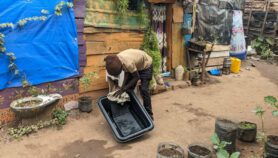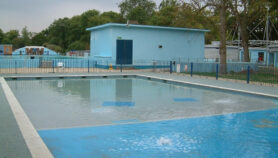Send to a friend
The details you provide on this page will not be used to send unsolicited email, and will not be sold to a 3rd party. See privacy policy.
[SÃO PAULO] Prototypes of affordable, sustainable housing for impoverished communities are scheduled to be built and tested in Brazil and Ecuador by a UK–Latin America engineering collaboration.
This follows the successful testing of a house prototype to improve its performance in energy, ventilation, lighting, sanitation and structural design, carried out in March, in Cambridge, United Kingdom.
The tests lead to design improvements to allow for more durable and safer housing for poor communities in South America.
The partnership developing the improved housing is between Un Techo para mi Pais (‘A Roof for my Country’) — a youth-led non-profit organisation in Brazil, commonly known as TECHO — and a multidisciplinary programme based at the University of Cambridge’s engineering department.
According to Luciano Coelho, TECHO’s director, the joint initiative has been developing sustainable materials that can be applied to house components, including gutters and water tanks.
"We’re studying new technologies, such as water recycling systems, for use in the construction of both temporary and permanent housing," Coelho told SciDev.Net. "We’re also looking at methods for facilitating the construction work, as the houses are built by unqualified labourers."
The Eco-House Initiative, as the project is called, also aims to facilitate dialogue between academics, the private sector and policymakers. By doing so, it aims to improve interaction between these groups and the nongovernmental organisations (NGOs) that possess knowledge of sustainable housing solutions and urban planning specific to local contexts.
Brazil and Ecuador have been chosen because of the diversity of their terrain features such as sloping terrain or the proximity of rivers, Coelho added.
The Eco-House Initiative is led by Engineers without Borders, an international development organisation housed at Cambridge University that provides opportunities for young people to learn about technology’s role in tackling poverty.
Since 2011, the initiative has been working to improve the quality and durability of its prototype house, based on assessments of community needs.
Coelho highlighted that these houses cost no more than 3,300 Brazilian reals (around US$1,600). TECHO has already built 80,000 temporary houses in various Latin American countries, but they only last for around five years since they are built cheaply and quickly as temporary or emergency solutions. The new initiative aims to improve their durability and longevity.
"We’re also trying to get governmental backing to start the construction of permanent houses," Coelho said.
Claudia Andrade Oliveira, a researcher at the faculty of architecture and urbanism at the University of São Paulo, said the partnership could help attract people to work on similar projects.
"These experiences stimulate the development of new projects driven by local community practices and knowledge, bringing important gains to the performance improvement process and to the quality of future interventions, which can be expanded to other places," Oliveira said.
See below for a video about the Eco-House Initiative:













